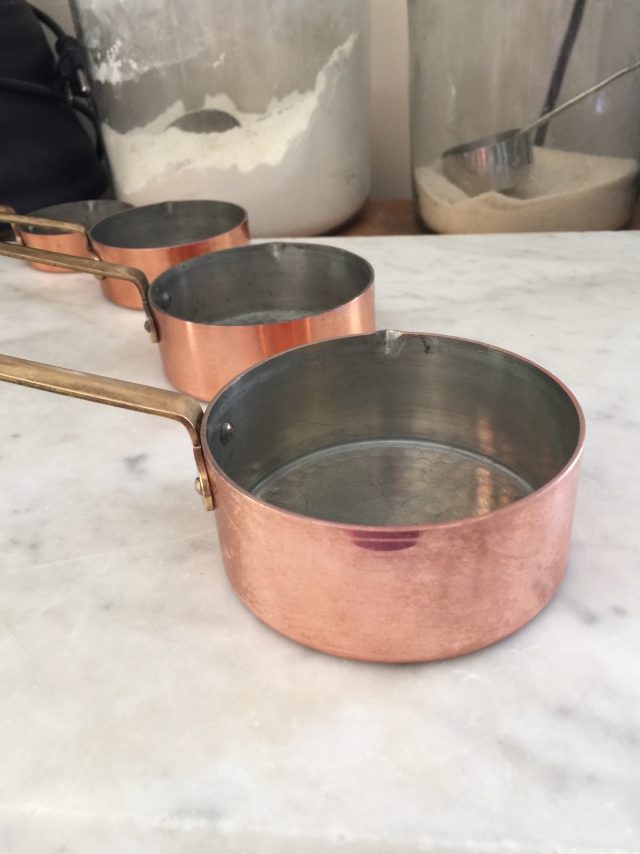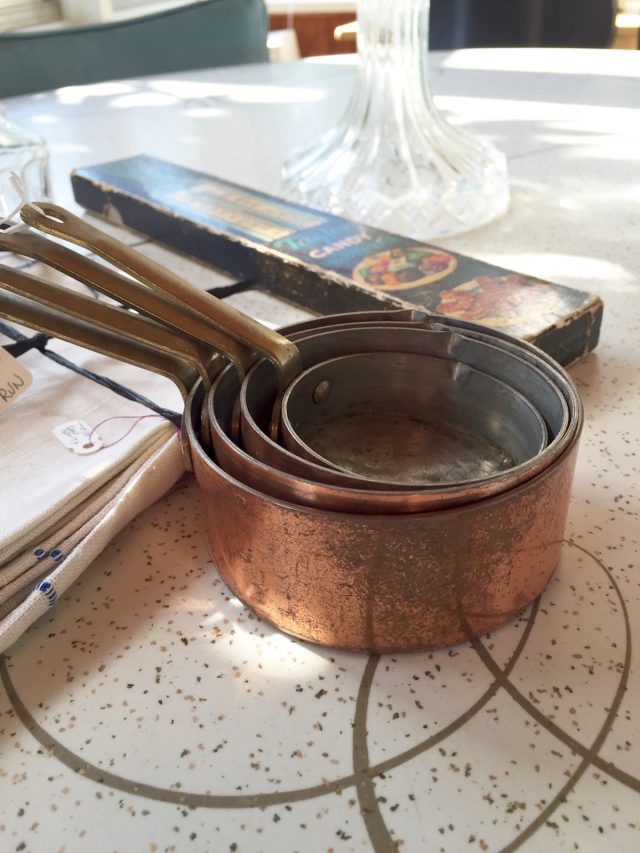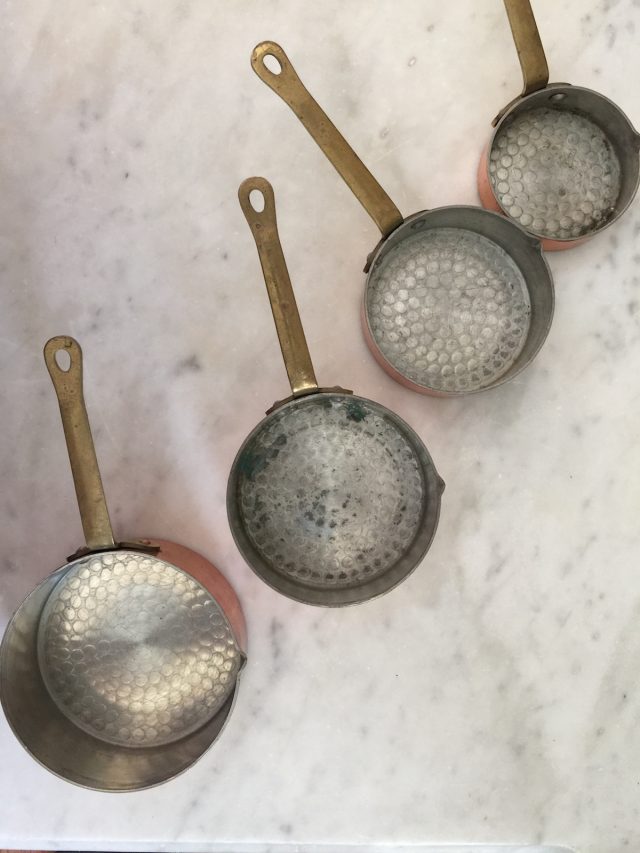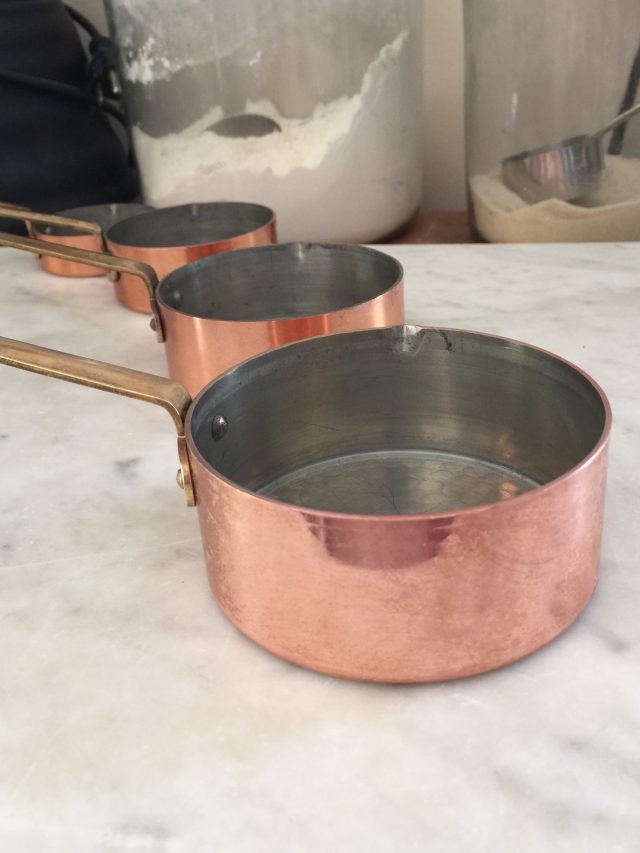All-Natural Copper Cleaning Tip

Over the years, you’ve seen my affinity for copper on Instagram. I love collecting and restoring it so much, I even used to sell some pieces. Ones I found in my travels that just begged for a new home; all they needed was someone with foresight, who could see their value once cleaned up.
Some days I feel like a piece of old copper; tarnished, dull-looking, but underneath there’s an amazing person screaming to come out. My tips for cleaning copper won’t work on humans—that’s what my walks along the reservoir are for, along with meditation and journaling. The latter two are things I’m trying to get back into to shine up my soul. That is a conversation for another post, and another day, though.
Today, I’m here to share my tricks for cleaning copper without using harsh chemicals. You’ll find a few tips out there for how to clean copper naturally—I’m not reinventing the wheel here. None of them alone have worked for me, but combined, they work wonders.
I must confess that for years I went the route of those cleaners you find in the cleaning aisle of the supermarket or hardware store. They seem faster and more efficient, time-wise, but the odor is so off-putting. They also leave a residue that requires a lot of water to rinse off.
I’ve read tricks for using ketchup to polish copper. While ketchup isn’t the most nourishing of foods, even though a former president asserted it’s a vegetable, it feels wasteful to use it for cleaning copper. Perhaps this is a mind over matter situation. If you give it a try, please do chime in and let us know your results.
My all-natural method for cleaning copper consists of three ingredients you likely already have in the pantry: salt, lemons, and baking soda.
Many resources point to using lemon and baking soda, or lemon and salt. I’ve found that a combination of all three works best. Measuring out amounts feels too fussy, and the task of cleaning copper already feels daunting enough, at least when you collect it the way I do. Dull copper hanging in the kitchen is like your kids constantly saying “mom, mom, mom…”.
Here’s what I do when setting out for an all-natural copper cleaning session.
- Set out a bowl of coarse salt (I use Diamond Crystal). This isn’t the occasion to use your fancy salt, folks.
- Set out a bowl of baking soda. As with the salt, the amount you need depends on how much copper you’re cleaning.
- Cut a few lemons into wedges. I find they’re easier to handle this way, especially when trying to clean tiny crevices. Cut yours in half if you prefer a larger surface to use for scrubbing.
- Dip a lemon wedge into the salt. Use the lemon to scrub the copper. I find a rubbing in a circular motion works well. I alternate between a quick scrub with salt, and then dip the lemon in baking soda to polish the area I’ve cleaned before moving onto the next patch. Be gently aggressive when scrubbing with the salt, a little elbow grease to remove the dullness but not so much that you risk damaging the copper (especially true for older copper).
A little patience, and gentle upper arm workout works wonders to restore your copper without using any harsh chemicals. And yes, the crazies of the internet will jump all over you if you call this a chemical-free alternative, as Martha Stewart’s website did in an article on using the lemon/baking soda combination. Baking soda and salt are both technically chemical compounds, but really, people need to get a life before going all bat-shit nuts over a simple, useful article on all-natural copper cleaning methods.
Happy all-natural polishing, people!




Lynda
Love old kitchen ware of all sorts. Your copper pots are beautiful; I’ll have to try the magic cleaners – I’m guilty of using the stinky commercial cleaner.
Thank you and always look forward to your posts.
Lynda
Forgot to tell you that I pray for you and your girls- hugs.
Jennie
Thank you, Lynda. So very kind of you. xo-Jennie
Theresa
Jennie, I have inherited some lovely copper from my friend. I just had 2 pieces retinned and they are gorgeous. Are there any limits to what you can cook in them? Are tomato based sauces OK?
Jennie
Hi Theresa,
Provided the pans are lined (my newer ones have stainless steel linings), you can use them to cook acidic sauces (like tomatoes).
Jennie